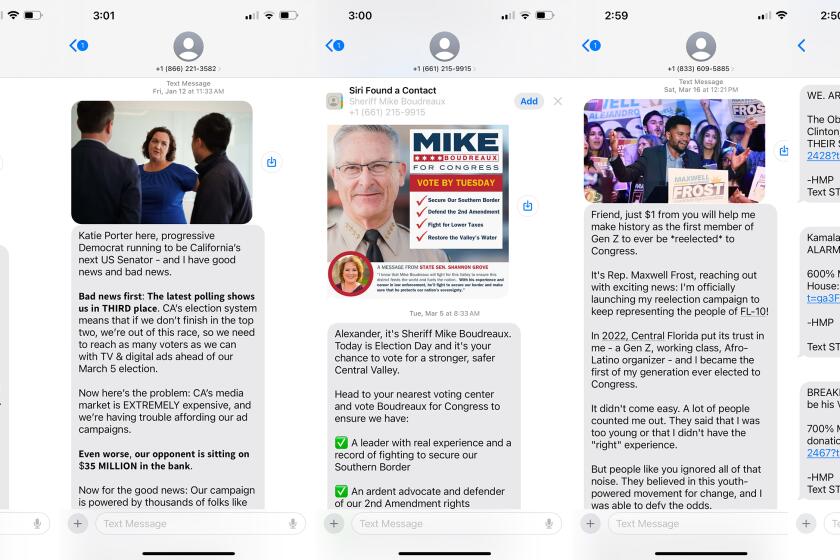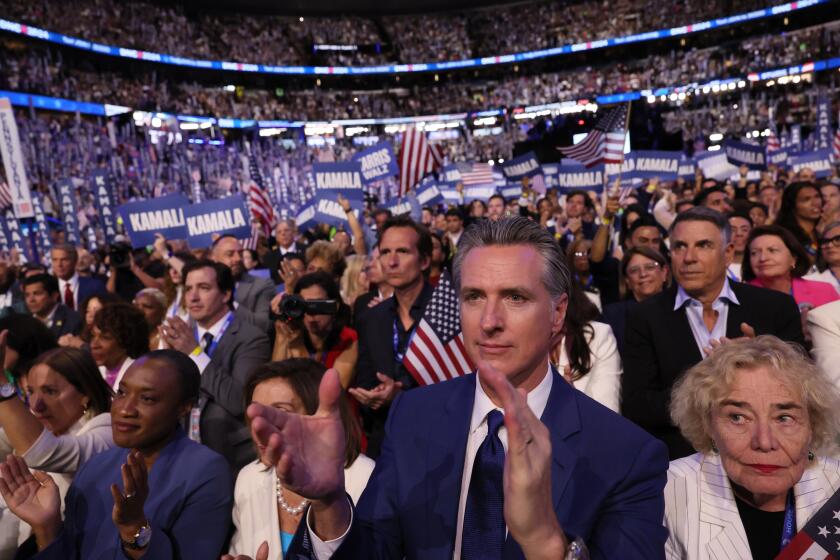U.S. seeks to coax, coerce Sudan with new policy
The White House on Monday unveiled a Sudan policy that seeks a middle ground between punishing the country for its actions in Darfur and appeasing it, a step away from the get-tough policy advocated by President Obama during his election campaign.
The announcement of the new policy came after seven months of debate within the administration. It was cautiously welcomed by advocates of stringent measures to end the violence in Darfur, who expressed relief that the White House did not adopt a more conciliatory approach.
The administration wants Khartoum to end the fighting between Darfur rebels and government-backed militias. But it also is trying to persuade President Omar Hassan Ahmed Bashir’s government to cooperate in fighting terrorism, and in implementing a 2005 agreement that ended a civil war between the country’s northern and southern regions.
Under the new policy, administration officials said they would renew sanctions on Sudan for its actions in Darfur, which the U.S. has declared to be genocide. But they also will offer incentives for cooperation on key issues.
The policy also seeks to resolve an internal dispute among key parts of the Democratic Party constituency and powerful lawmakers.
Retired Air Force Gen. J. Scott Gration, the administration’s special envoy to Sudan, has argued that the administration should end sanctions in hopes of winning broader cooperation.
But Susan Rice, U.S. ambassador to the United Nations, has long pushed for strong action against the Sudanese government. Gration’s proposal also brought an outcry from Darfur advocacy groups and some members of Congress.
The International Criminal Court estimates that about 35,000 people have been killed by government troops and allied militias in the six-year war in Darfur, and that at least 100,000 more have died of disease and starvation as villagers fled the violence.
Secretary of State Hillary Rodham Clinton, announcing the new policy at the State Department, said the administration would use a “menu of incentives and disincentives” to achieve its goals. Clinton declined to spell out specific punishments and rewards, saying they were part of a classified document.
Bashir’s government has strong Chinese economic support and has proved resistant to American pressure. But administration officials sought to underscore their determination to force a change in its behavior.
Obama, in a statement, said the United States and foreign allies must act “with a sense of urgency and purpose” to seek an end to the violence and human rights abuses in Darfur.
He also emphasized the importance of carrying out the North-South peace deal, saying the two goals “must both be pursued simultaneously with urgency.”
Activists said the policy could work if Obama effectively implements penalties as well as incentives and raises the issue with foreign leaders.
“We need to see substantial personal involvement from President Obama -- for example, he must make Sudan a priority when he goes to China next month,” said Jerry Fowler, president of the Washington-based Save Darfur Coalition.
Ghazi Salah Eddin Atabani, a senior advisor to Bashir, praised the new U.S. policy on Sudanese television, comparing it favorably with what he called the “extremist” version that had been in place, according to an Associated Press report.
“We hope this will end the debate among U.S. officials and we hope that now they will think with one mind and speak with one tongue,” Atabani said.
--
More to Read
Get the L.A. Times Politics newsletter
Deeply reported insights into legislation, politics and policy from Sacramento, Washington and beyond. In your inbox three times per week.
You may occasionally receive promotional content from the Los Angeles Times.










